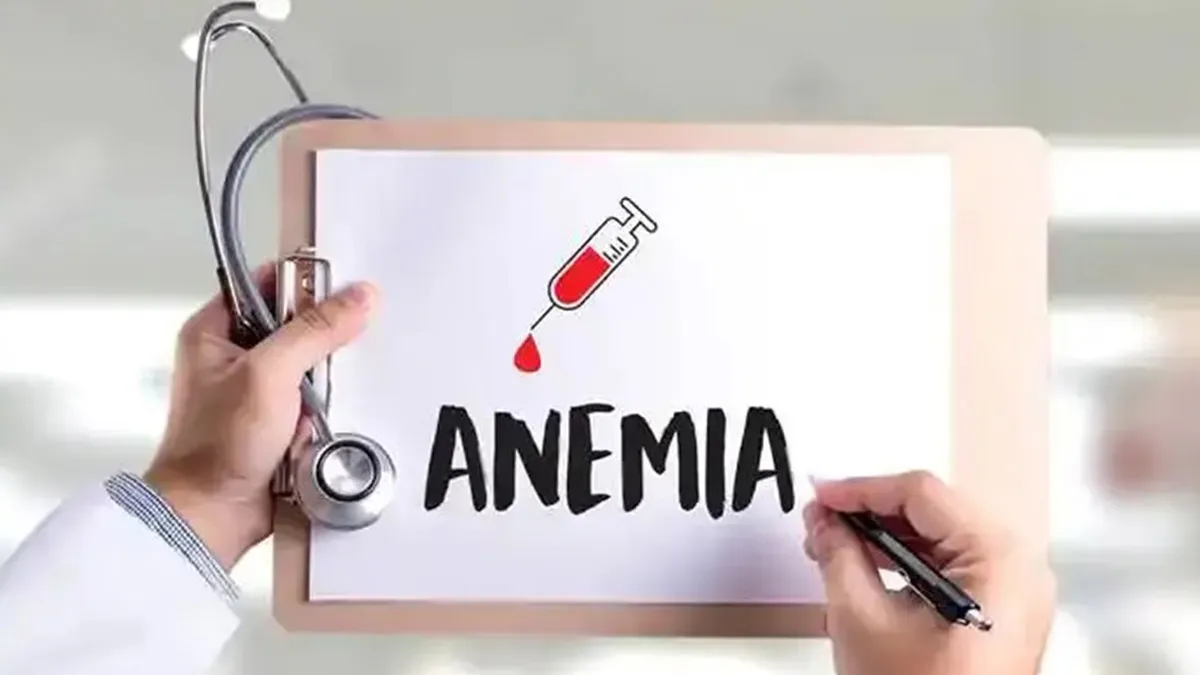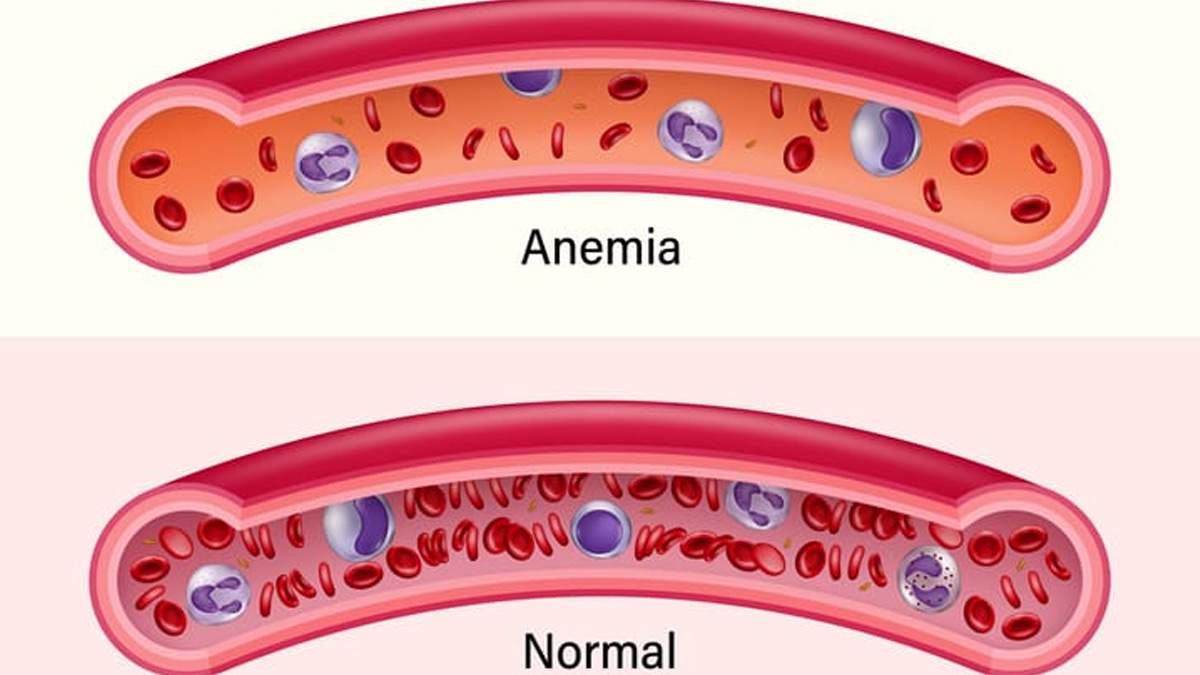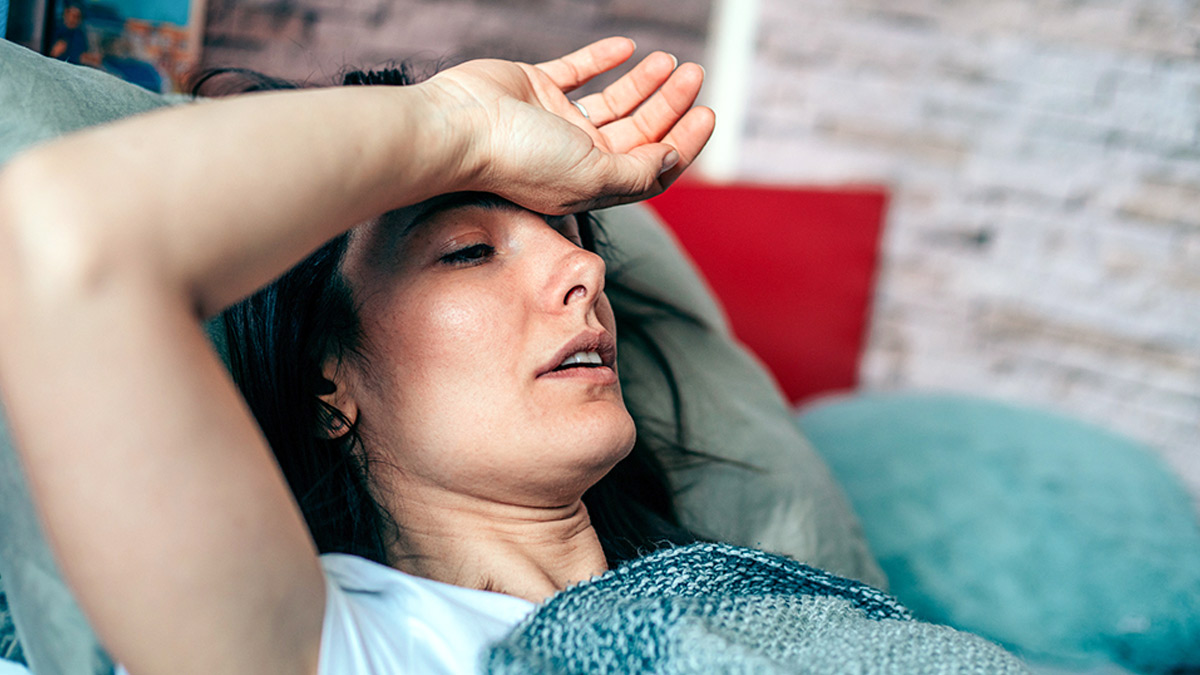
National Anaemia Day, observed annually on March 21, aims to spread awareness about anaemia, a condition characterised by a deficiency of red blood cells or haemoglobin in the body. According to the National Family Health Survey 5 (2019-21), nearly 57% of women aged 15 to 49 in India are anaemic, highlighting a significant public health concern.
Why Are Women More Prone to Anaemia?
Anaemia is more prevalent in women than men due to several biological, nutritional, and socio-economic factors. Understanding the underlying causes can help in better prevention and management.

Menstruation-Related Blood Loss
One of the primary reasons women are more susceptible to anaemia is menstruation. The monthly loss of blood leads to a depletion of iron levels in the body, and for those with heavy menstrual bleeding (menorrhagia), the risk is even higher.
Increased Iron Demand During Pregnancy
Pregnancy significantly increases a woman’s need for iron. The body requires more iron to support the growing foetus and ensure proper oxygen circulation. Without adequate iron intake, pregnant women are at a heightened risk of developing anaemia, which can lead to complications such as premature birth and low birth weight.
Also Read: Must-Watch Movies That Will Make You Rethink Your Sleep Habits
Poor Dietary Habits and Nutritional Deficiencies
Many women, especially in lower-income groups, do not consume enough iron-rich foods such as red meat, leafy greens, legumes, and fortified cereals. Additionally, deficiencies in essential nutrients like vitamin B12 and folic acid, which are vital for red blood cell production, further contribute to anaemia.
Lower Iron Stores Compared to Men
Women naturally have lower iron reserves than men, making them more vulnerable to anaemia. Since iron plays a crucial role in haemoglobin production, a lack of sufficient stores can quickly lead to a deficiency.

Underlying Health Conditions
Certain medical conditions, such as gastrointestinal disorders, kidney disease, and chronic infections, can affect iron absorption or cause excessive blood loss. Women suffering from such conditions are at an increased risk of developing anaemia.
Effective Ways to Combat Anaemia
Addressing anaemia requires a multifaceted approach, including dietary changes, medical intervention, and increased awareness. Here are some effective strategies to combat anaemia among women:
Also Read: Must-Watch Bollywood Movies That Explore The Challenges Of Living With Chronic Illnesses
Incorporate Iron-Rich Foods in the Diet
A well-balanced diet plays a crucial role in preventing anaemia. Women should consume more iron-rich foods such as:
- Lean meats (chicken, fish, beef)
- Leafy green vegetables (spinach, kale, fenugreek)
- Legumes (lentils, beans, chickpeas)
- Fortified cereals and whole grains
- Nuts and seeds (pumpkin seeds, almonds, cashews)
Additionally, pairing iron-rich foods with vitamin C sources like citrus fruits and tomatoes can enhance iron absorption.

Iron Supplements and Fortified Foods
For women who struggle to meet their iron requirements through diet alone, iron supplements can be an effective solution. Pregnant women, in particular, are often advised to take iron and folic acid supplements to prevent complications.
Regular Health Check-ups
Routine blood tests can help detect anaemia at an early stage, allowing for timely intervention. Women should schedule regular check-ups, especially if they experience symptoms such as fatigue, dizziness, pale skin, or shortness of breath.
Manage Menstrual Health
Women who experience heavy periods should consult a healthcare provider to manage excessive blood loss. Treatments such as hormonal therapy or medications may help regulate menstrual flow and prevent iron depletion.
Public Health Initiatives and Awareness Programs
Government and healthcare organisations play a crucial role in combating anaemia through nutrition programs, awareness campaigns, and subsidised healthcare services. Encouraging women to prioritise their health and seek medical advice when needed is essential for reducing anaemia prevalence.
Bottomline
Anaemia remains a major health concern among women, but with proper awareness and proactive measures, it can be effectively managed. Ensuring a nutrient-rich diet, regular health screenings, and improved menstrual health management can significantly reduce the risk of anaemia. On National Anaemia Day 2025, let’s take a step toward empowering women with the knowledge and resources to lead healthier, anaemia-free lives.
Also watch this video
How we keep this article up to date:
We work with experts and keep a close eye on the latest in health and wellness. Whenever there is a new research or helpful information, we update our articles with accurate and useful advice.
Current Version